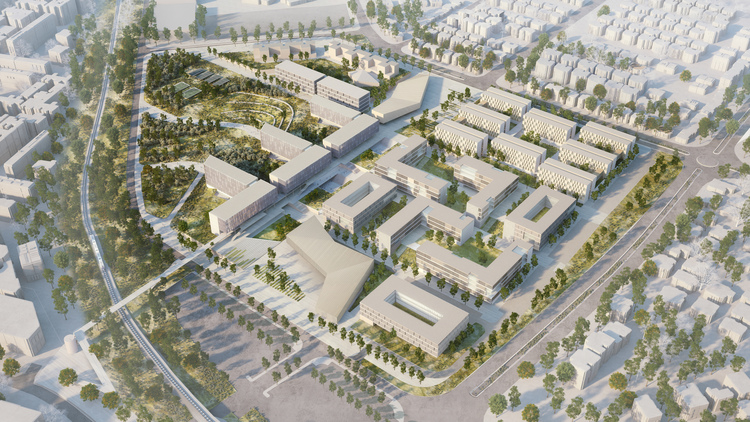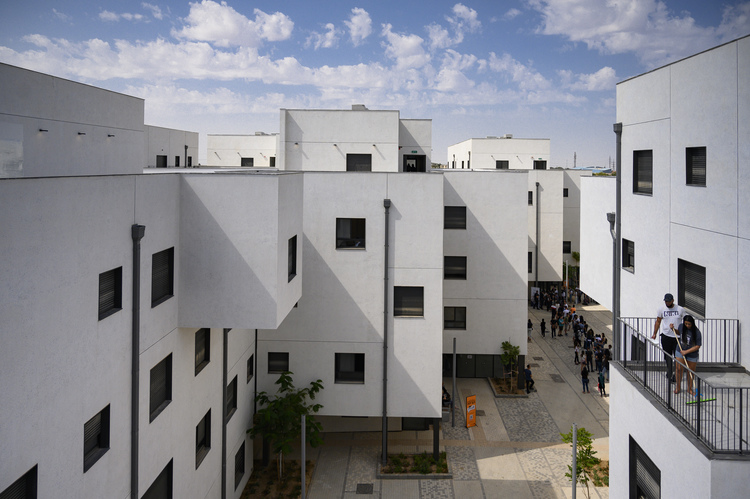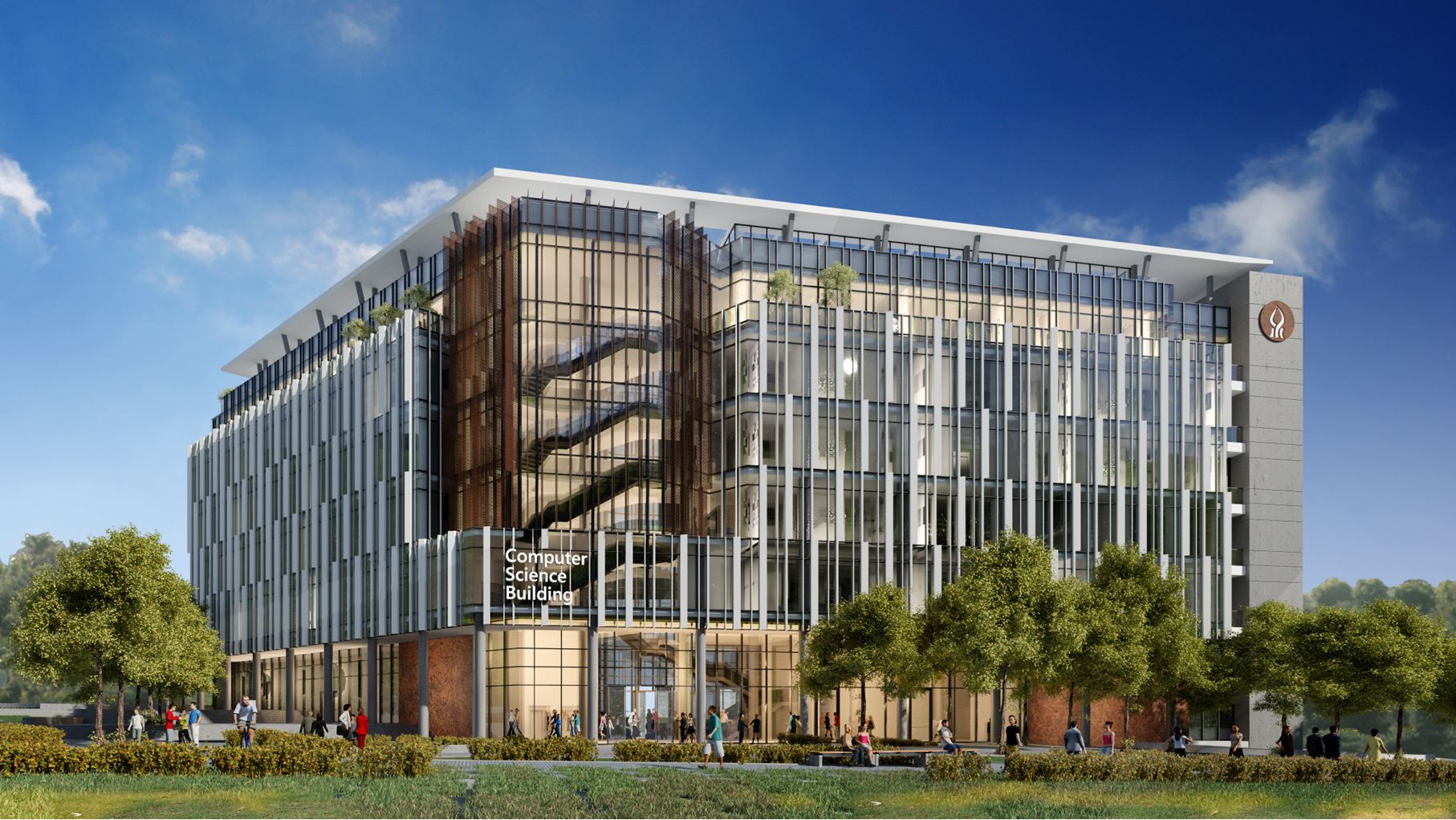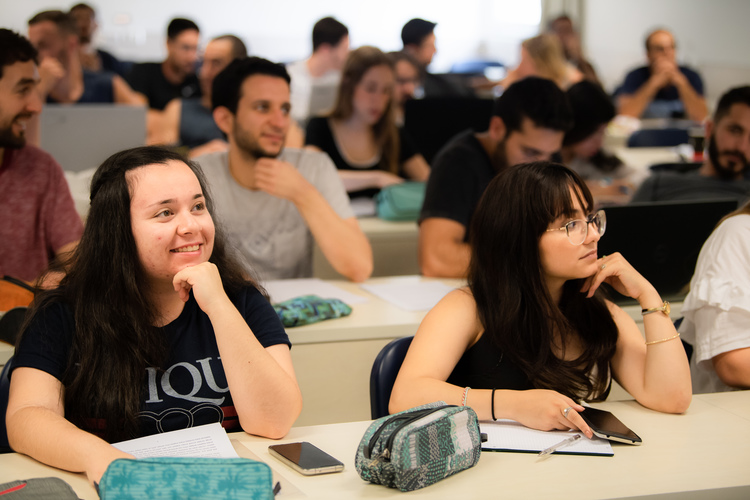BGU's new North Campus in Beer-Sheva will enable the expansion of cutting-edge disciplines and the establishment of new ones in line with national needs

In keeping with David Ben-Gurion's insistence that “it is not enough to be up to date, you have to be up to tomorrow," Ben-Gurion University is constructing a new campus to enable the expansion of cutting-edge disciplines and the establishment of additional ones in line with national needs. Significantly, the North Campus — whose 57 acres will double the University's footprint in Beer-Sheva — will also allow for a larger student body, expected to increase with the growth and development of the Negev, as well as with the influx of soldiers and their families to new bases slated for the region and the forthcoming IDF technology campus next door.
To accommodate these new students, the campus features a 14-building, handicap-accessible Undergraduate Student Village for 1,000 occupants —the largest capital project since the founding of the University. The Village itself will eventually open onto a thoroughfare called the Forum, the central artery of the North Campus. The tree-lined pedestrian walkway will both connect the campus' many buildings and serve as a bridge to the Marcus Family Campus to the south.

Among the first structures slated for completion after the Undergraduate Student Village are the Diane and Guilford Glazer Foundation Future Technologies Building, whose four-story, 68,000 square-feet facility will include a Remote Sensing Rooftop Facility. Featuring advanced equipment for satellite tracking and communication, it will serve the ambitious remote-sensing goals of BGU's Earth and Planetary Image Facility (EPIF). There will also be a clean room complex, dry and wet laboratories, and an electro-optics research center and unit for specialized microscopy.
To facilitate the development of one of the fastest-growing fields of study at BGU and one of the most sought-after fields in hi-tech industries worldwide, we are also constructing a new Computer Science Building. Future home to 40 labs, offices for 100 researchers, and a student center, the Helmsely Computer Science Building will ensure that BGU can train a new generation of scientists and students in such cutting-edge areas as artificial intelligence, data mining, and computer vision, as well as continue to be a leading partner for the IDF in the development of new security technologies.
The new Civil and Environmental Engineering Building, meanwhile, will be instrumental to the preparation of a new generation of professionals capable of meeting both Israel's and the world's growing need for sustainable construction practices. In addition, the department will focus on innovative solutions for challenging landscapes, natural disasters, and extreme climates. Itself a masterpiece of sustainable construction and design, the building will utilize renewable materials, water-saving and solar technologies, and smart systems to minimize waste, as well as feature a green roof and façade for studying air purification, rainwater-collection methods, and more.

The proximity of the University to both the new IDF technology campus and the Advanced Technologies Park— which, together with Soroka University Medical Center, will anchor a new Beer-Sheva Innovation District —will also open the door to increased opportunities for academic-industry collaboration. To capitalize on this potential, the North Campus will feature the Drahi Innovation and Entrepreneurship Building, intended to foster a spirit of entrepreneurship in its classrooms, spaces for co-working and collaboration, and 4,000-square-foot cafeteria.
Angela Drahi, chairman of the Patrick & Lina Drahi Foundation, which has supported academic incubators and entrepreneurship centers in both Israel and her native France, described the purpose of the building as “pushing students toward entrepreneurship": “The goal is not only to invent something, but rather to learn to think like an innovator and to bring a spirit of innovation to all that you do," said Drahi. “If the Drahi Innovation and Entrepreneurship Building can facilitate this educational approach at BGU, we will have helped secure the next generation of leaders for Israel."
The North Campus' new Cultural Center promises to change the cultural landscape not only of BGU, but of Beer-Sheva and the Negev as a whole. The state-of-the-art, 900-seat concert hall and conference venue will bring renowned musicians to Beer-Sheva, in most cases for the first time. The structure will also include an interactive Visitor's Center that will showcase the contributions of BGU to the Negev, Israel, and the world.

Along with concerts and performances, the center will also allow Beer-Sheva to host major national and international events, thereby raising the University's and the city's profile significantly. “We are so pleased and honored that he is making it possible for us to build a world-class performance and conference facility," says BGU President Prof. Daniel Chamovitz. “For the Negev to serve, as David Ben-Gurion envisioned, as an engine of growth for Israel and the world, Beer-Sheva must become a vibrant cosmopolitan city in which young professionals want to work and live. With the addition of the Cultural Center to BGU's North Campus, Beer-Sheva is one step closer to that goal."
